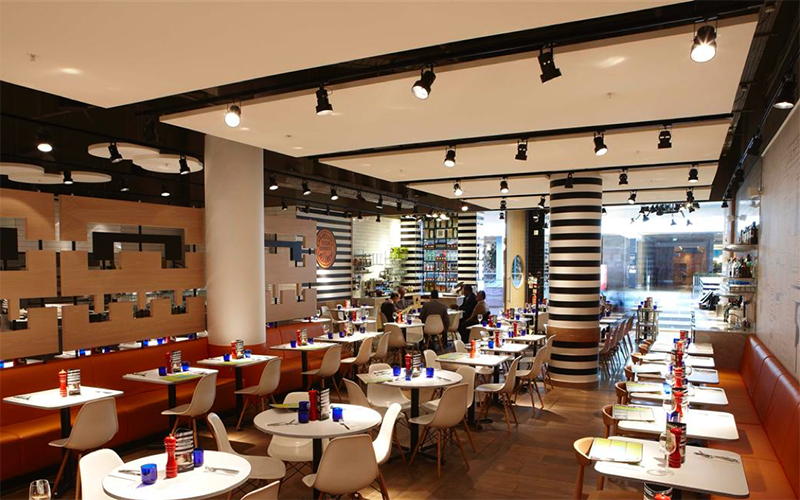
A Few Minutes With Pasquale Bottalico
In this edition of "Five Minutes With ...," AHS media relations specialist Vince Lara-Cinisomo interviews Dr. Pasquale Bottalico in the department of Speech and Hearing Science about his study of the effects of ambient noise in restaurants.
Bottalico, in his study, “Lombard effect, ambient noise and willingness to spend time and money in a restaurant,” published in The Journal of the Acoustical Society of America, found that subjects reported a disturbance of their speech when noise reached 52.2 A-weighted decibels (dBA) and that vocal effort began to increase at 57.3 dBA. The sound level of speech increased as ambient noise increased. As background noise increased, it triggered a decrease in the willingness to spend time and money in that establishment. You can read more about Dr. Bottalico's research here.
VINCE LARA-CINISOMO: Hello, this is Vince Lara, Media Relations Specialist at the College of Applied Health Sciences at the University of Illinois. Today I spend five minutes with Dr. Pasquale Bottalico, of the Department of Speech And Hearing Science, to talk about his recent study on ambient noise in restaurants and its effect on the bottom line.
PASQUALE BOTTALICO: So the goal of the restaurant, the idea of the restaurant, is what we can do to improve the situation in restaurant. So my study was actually started because there was a lack in the literature. And I'm always being interested, it's not the first paper that I worked about Lombard effect. I'm very interested in Lombard effect.
And I started to be interested in Lombard effect, again, starting from classroom acoustics, because the Lombard effect is basically characterized by a rate of voice increase per dB increasing noise in the environment. And the value is 72 for teachers, which is the highest. Generally, in the literature, it's reported between 0.3 and 0.6. But teacher, 0.72., so they're increasing their voice even higher.
VINCE LARA-CINISOMO: Every day?
PASQUALE BOTTALICO: Every day, for every dB of noise increasing in the classroom. So this means that restaurant noise-- everyone went to a restaurant in his life, and it can happen that after dinner with some people, at a restaurant, you go out and your throat's sore. And you don't really understand why. And because the Lombard effect is an unconscious effect, so you are not conscious of the fact that you are actually screaming.
But your voice, your body, and your physiology knows that. And so you will have the effect that your throat is burning. And I found particular the fact that this effect was never studied in a restaurant. And there were not studies correlating it with the willingness to spend money. So I thought it was a good idea to do the study. And I already did similar study for understanding other aspects of the Lombard effect. I was quizzing in the past about at which level of noise it starts, these effects, in other papers.
So I use a similar protocol, but I changed the setting, and it changed the noise. So I tried to recreate a restaurant in one of our sound booths. I had my students, my undergraduate students, that were the partner in the dinner. And we used typical restaurant noise, and we changed the level in a random way, covering a very large interval of noise, so from a medium level to a very loud level. Again, using the range of noise level reported by the literature, in restaurant noise.
And what it came out, that a level between 50 and 55 dB is starting this willingness to leave that place, and also to spend less money to eat in that place, and is starting the disturbance in the communication. And because of that, there is the objective evaluation of the voice, that is starting to increase at about 60 dB of noise. And all of these effects were quite strong.
We are starting to work again on the project. After the forum actually, because I kind of figured out that in this case, we used college students for this study, and I'm considering it like a pilot. But I want to move forward with the elder population.
And so, we know also that we have child in our college that's interested in new research on aging people. And we have a movement, that is the age friendly in Urbana-Champaign, to make the city more friendly for aging people. And I think that this project will fit perfectly.
So I have a doctoral student in audiology. She's going to start to collect data next semester. And the goal will be to create a different group in the elder population, normal hearing, and people with a moderate hearing loss, and people with a severe hearing loss. And try to understand better how these vulnerable populations are affected by the problem.
VINCE LARA-CINISOMO: My thanks again to Dr. Bottalico. This has been Five Minutes With.
